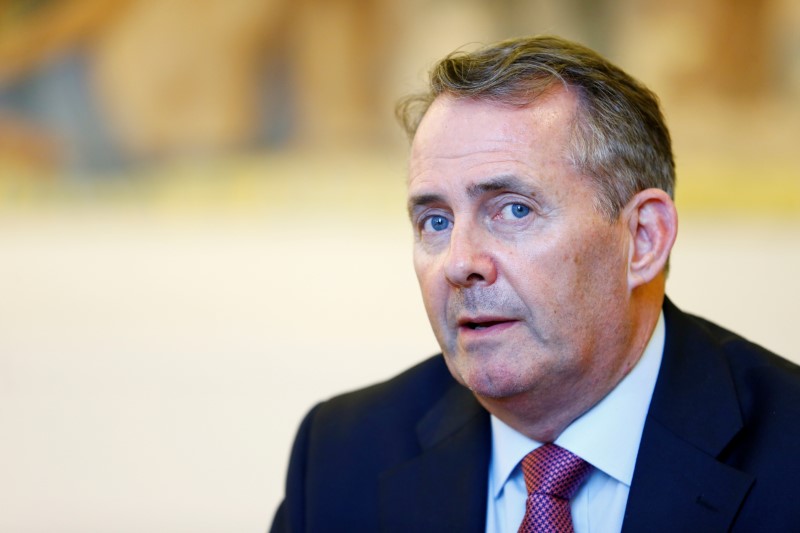By William James
TOKYO (Reuters) - British trade minister Liam Fox said on Friday Britain would not be blackmailed into agreeing on the cost of leaving the European Union and urged Brussels to move negotiations on to discuss Britain's future relationship with the bloc.
The third round of Brexit negotiations, focused on settling the terms of Britain's exit from the EU, ended on Thursday with a warning from Brussels that more work needed to be done before they moved on to discuss future ties.
The British government has been keen to shift talks to a new relationship, seeking to allay business concerns on trade and regulation, but Brussels has demanded progress first on central issues, including how much Britain should pay when it leaves.
Guy Verhofstadt, the European Parliament's Brexit point man, wrote in Britain's Telegraph newspaper that while "it is in the interests of the EU for us to secure a close relationship, ... we must first agree a methodology for the settling of accounts, secure the rights of EU citizens in the UK and have a frank discussion about the Irish border".
In Japan with Prime Minister Theresa May, Fox told broadcaster ITV (LON:ITV): "We can't be blackmailed into paying a price on the first part."
The Brexit bill is a contentious issue both domestically, where eurosceptics are keen to see as little money paid as possible, and with the EU, which is demanding Britain meets its existing commitments to the bloc.
Britain has said it is prepared to meet its international obligations and on Thursday, Brexit minister David Davis said London was willing to offer more than the bare legal minimum.
Fox said businesses across Europe had told him they were keen to see more detail on what Britain's new relationship with the EU would look like.
"We think we should begin discussions on the final settlement because that's good for business, and it's good for the prosperity both of the British people and of the rest of the people of the European Union," Fox said.
But Verhofstadt said Britain's efforts to press for "a new customs union" and to recreate the EU's structures were "in order to continue to benefit from the best elements of the EU, without it being called the EU.

"This is not serious, fair or even possible given the negotiating time remaining."
(additional reporting by Elizabeth Piper in London; Editing by Janet Lawrence)